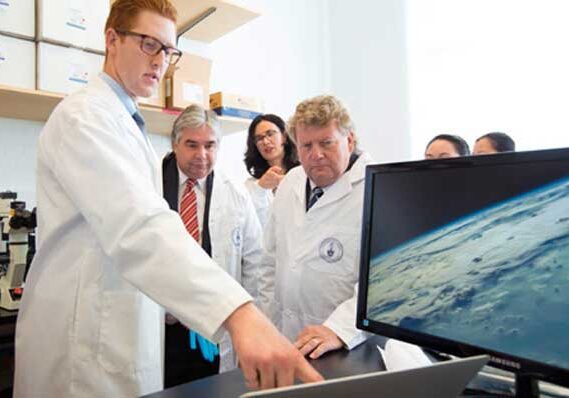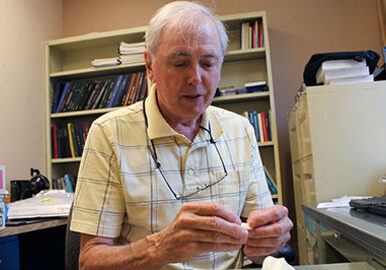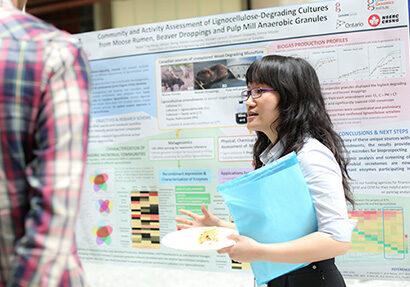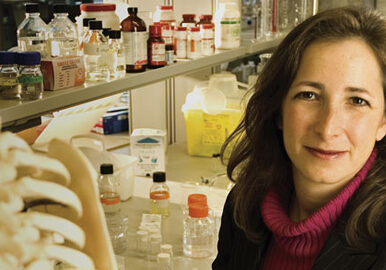
Engineering students showcase innovative research at UnERD
Crowded around glossy posters, inquiring about dental resins and porous structural materials, U of T Engineering’s undergraduate students buzzed with excitement as they shared their summer research projects. The event, known as UnERD (Undergraduate Engineering Research Day), was a one-day research symposium that gave students an opportunity to gain additional feedback and recognition for their […]

Engineering energy-efficient lighting
Doing more with less is the future of lighting. As smart novel lighting technologies use less energy to shine brighter, it’s also a trend that flipping the switch in homes and businesses around the world. It’s known as smart sustainable lighting, and researchers from the University of Toronto are leading the charge in design and […]

Four U of T Engineering students awarded Vanier Canada Graduate Scholarships
Cancer; climate change; aging infrastructure; heart disease: these 50 letters can cost billions of dollars and countless lives. On August 14, four U of T engineering students received Vanier Canada Graduate Scholarships – prestigious awards from the Government of Canada – to enable pioneering research in these areas: Miles Montgomery (IBBME PhD 1T6) for his […]

The world’s most energy efficient light bulb now dims without a dimmer
What if you could dim the lights across your entire house without having to buy dimming switches – and save the environment too? Thanks to the latest invention from Nanoleaf, a startup from U of T Engineering alumni, you soon can. Nanoleaf, creators of the world’s most efficient light bulb, has released a new dimmable […]

Using tiny technology to aid in the fight against cancer
This year’s McLean Award winner Aaron Wheeler (IBBME) believes the solution to the colossal challenge of personalizing medicine for cancer patients may be a tiny one. Funded jointly by U of T alumnus William McLean and U of T’s Connaught Fund, the $100,000 McLean Award is given annually to support outstanding basic scientific research at […]

Understanding how wounds heal
Whether you fall off your bike and scrape your knee, or knick your finger cutting onions, you know it’s only a matter of time before your injury has scabbed and healed. But what really just happened – how did your wound actually mend? Using a student-designed software program called MEDUSA, as well as a special […]

Suffering from knee pain? Biological joint replacements move a step closer with 3D printed templates
Knee pain – it’s familiar to runners, skiers, and almost anyone over a certain age. Yet doctors often urge patients to postpone knee replacement surgery as long as possible because the artificial joint may not last long. Now, a collaborative research project that began at the University of Toronto’s Institute of Biomaterials & Biomedical Engineering […]

Big ideas from biotech conference at U of T Engineering
Genetically engineering algae to produce biofuel. Growing artificial spinal discs in a lab. Using nanotechnology to fight malnutrition. These are just some of the ideas presented at the 16th annual CSChE Ontario-Quebec Biotechnology Meeting on May 15 – 16, 2014, which brought together over 90 graduate students from across Ontario and Quebec to explore the fascinating science […]

Medical research pioneer receives U of T’s most distinguished rank
Nausea, vomiting, hair loss – these are just a few of the unpleasant side effects of chemotherapy. Although the drugs are designed to kill cancerous cells and save lives, the potent chemicals destroy tissues and can damage the human body. Professor Molly Shoichet (ChemE, IBBME) is leading a multidisciplinary team of researchers who are developing […]

